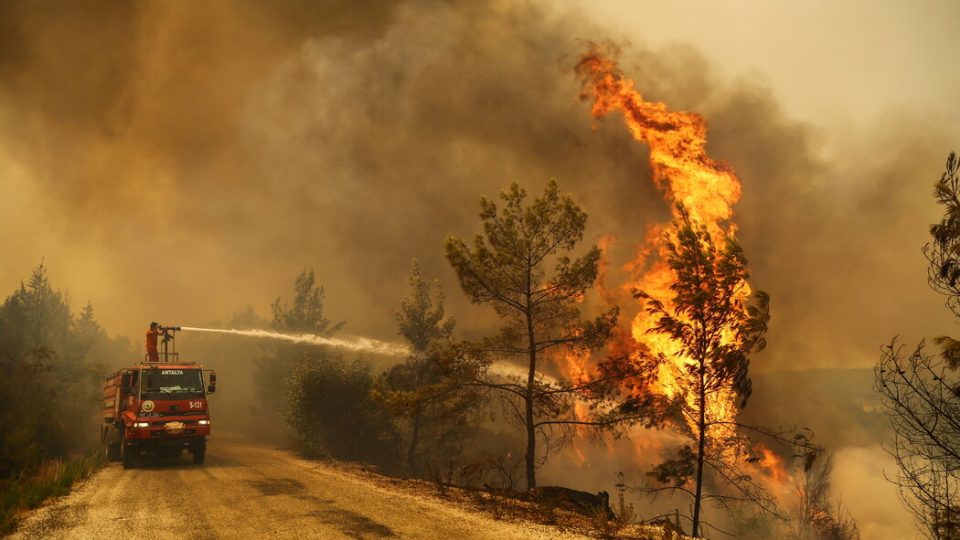Firefighters in Turkey struggled to contain dozens of wildfires raging for a third day Friday, as fast-spreading blazes forced popular holiday resorts and dozens of rural areas along the Mediterranean coast to be evacuated.
The fires, which authorities say may have been sparked by arson or human negligence, have killed at least four people and injured roughly 200 others.
As tourists were forced to flee hotels, some on boats as flames licked closer, local residents in rural areas watched the fires burn their homes, kill their livestock and destroy their businesses.
“Our lungs are burning, our future is burning,” Muhittin Bocek, the mayor of Antalya, a resort city, said in a telephone interview from the ravaged town of Manavgat, about 50 miles east along the coast.
The blazes are part of a broader pattern of wildfires afflicting the Mediterranean this summer, with areas in Lebanon, Syria, Greece, Italy, and Cyprus also battling fast-moving fires.
They are also the latest in a series of extreme weather events around the planet — from deadly floods in Europe and China to raging fires in the United States, Canada, and Siberia — that scientists believe are linked to changes in the climate resulting from global warming.
Cagatay Tavsanoglu, a biology professor specializing in fire ecology at Hacettepe University in Ankara, Turkey, said fires in the Mediterranean basin are an annual occurrence, but the extent of the blazes this year should serve as a warning.
“Many fires could not be put out, and with the influence of dry winds, burning happened too fast,” Tavsanoglu said. “It is just the first indication of what climate change would do to the Mediterranean region in the future.”
Under models that show a global temperature increase of 3 degrees Celsius (or an extra 5.4 degrees Fahrenheit), the high end of predictions, the average area that burns every year in southern Europe would double, according to a research paper published in Nature in 2018.
And even if warming stays below 1.5 degrees Celsius, the goal of the Paris Climate Accords, 40% more land could burn, the researchers warned.
This article originally appeared in The New York Times.


